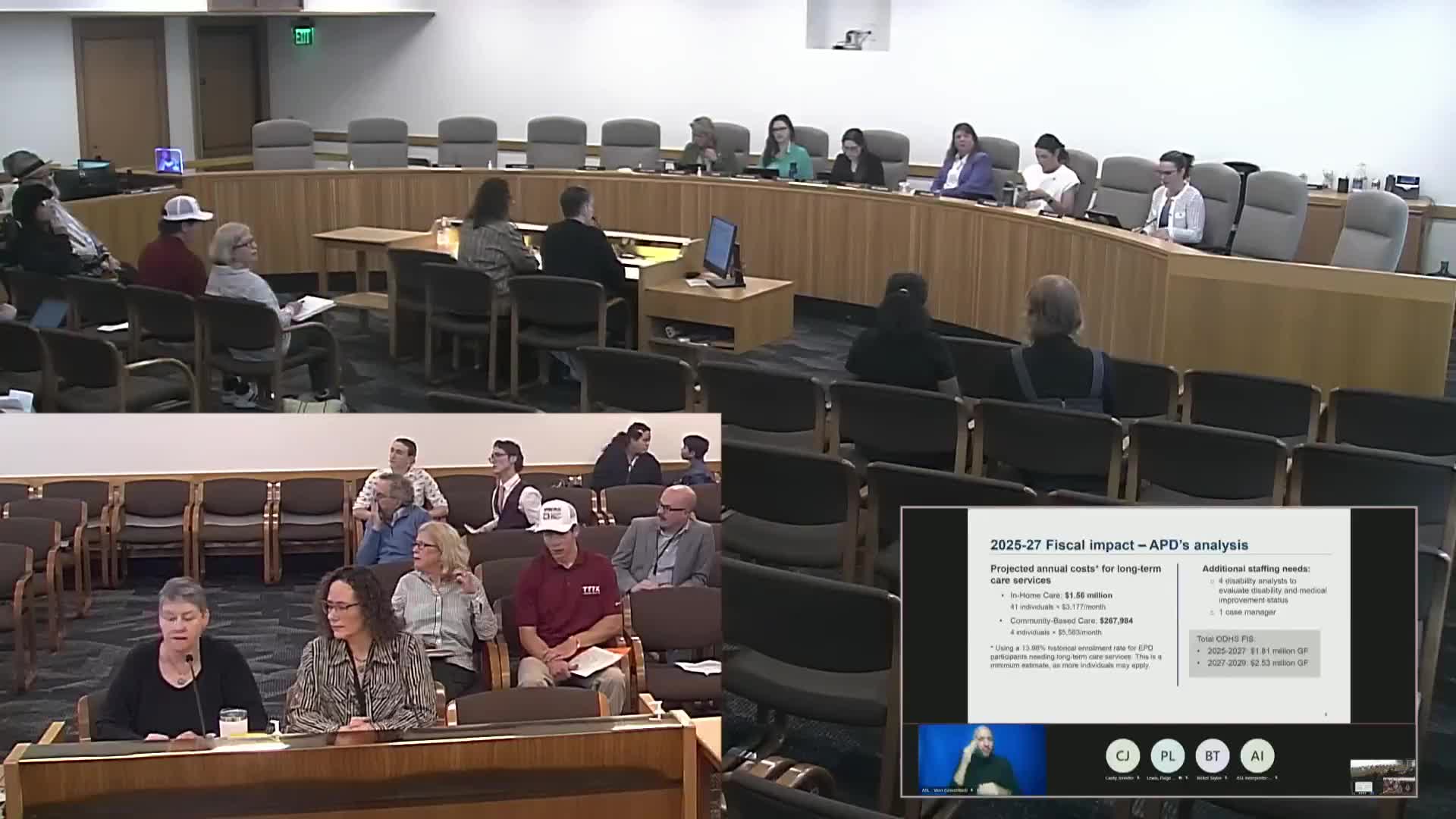Oregon Government allocates $1.8M for disability services and eligibility management improvements
May 29, 2025 | Early Childhood and Human Services, House of Representatives, Committees, Legislative, Oregon
This article was created by AI summarizing key points discussed. AI makes mistakes, so for full details and context, please refer to the video of the full meeting. Please report any errors so we can fix them. Report an error »

In a recent meeting of the Oregon House Committee on Early Childhood and Human Services, discussions centered around the financial implications of new federal options under the Social Security Act, particularly concerning individuals with disabilities. The committee examined the need for additional resources to manage an expected increase in caseloads, as new policies will allow more individuals to qualify for services.
A key point raised was the estimated cost of $1.8 million in general funds for the Oregon Department of Human Services (ODHS) over the biennium. This funding will support the hiring of four new staff members dedicated to assessing whether individuals are medically improved yet still eligible for the employed persons with disabilities program. The committee acknowledged that these changes would also necessitate system updates and training for staff involved in eligibility and disability termination processes.
The conversation also touched on the relationship between employer-sponsored health insurance and Medicaid. It was clarified that when individuals have employer insurance or are on Medicare, Medicaid acts as a secondary payer. This means that if a medical bill is incurred, the primary insurance covers the majority of the costs, with Medicaid stepping in to cover any remaining balance. This coordination of services is crucial for ensuring that individuals receive the support they need without unnecessary financial burden.
As the committee navigates these complex issues, the implications of their decisions will resonate throughout Oregon's healthcare landscape, particularly for those relying on disability services. The discussions reflect a commitment to enhancing support for vulnerable populations while managing the fiscal responsibilities of the state.
A key point raised was the estimated cost of $1.8 million in general funds for the Oregon Department of Human Services (ODHS) over the biennium. This funding will support the hiring of four new staff members dedicated to assessing whether individuals are medically improved yet still eligible for the employed persons with disabilities program. The committee acknowledged that these changes would also necessitate system updates and training for staff involved in eligibility and disability termination processes.
The conversation also touched on the relationship between employer-sponsored health insurance and Medicaid. It was clarified that when individuals have employer insurance or are on Medicare, Medicaid acts as a secondary payer. This means that if a medical bill is incurred, the primary insurance covers the majority of the costs, with Medicaid stepping in to cover any remaining balance. This coordination of services is crucial for ensuring that individuals receive the support they need without unnecessary financial burden.
As the committee navigates these complex issues, the implications of their decisions will resonate throughout Oregon's healthcare landscape, particularly for those relying on disability services. The discussions reflect a commitment to enhancing support for vulnerable populations while managing the fiscal responsibilities of the state.
View full meeting
This article is based on a recent meeting—watch the full video and explore the complete transcript for deeper insights into the discussion.
View full meeting
